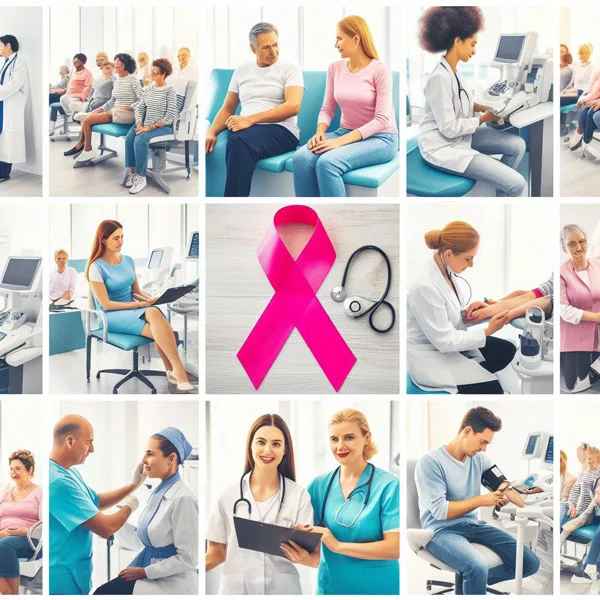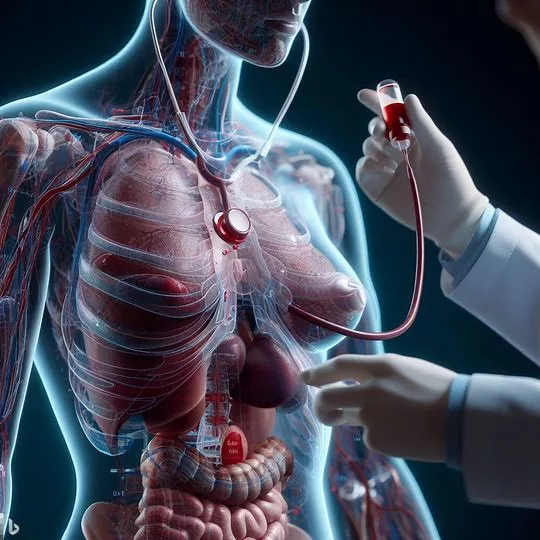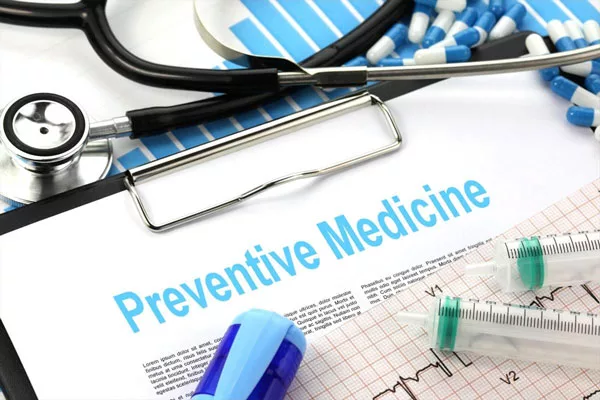Staying Healthy in Retirement: Essential Screenings for Seniors
Table of Contents
Introduction
Remember the days when the most rigorous screening you underwent was trying to recall your PIN at the grocery store checkout?
Well, in our retirement years, screenings take on a whole new meaning – and no, we’re not talking about movie screenings (though those are important too).
Health screenings in our golden years are like regular pit stops in the race of life, ensuring our engines are running smoothly and we’re ready for the next lap. So, buckle up, and let’s explore the world of essential health screenings for retirees!
Understanding Preventive Screening Guidelines for Adults
Preventive screenings are those health check-ups designed not just to catch potential health issues but to prevent them from turning into major plot twists.
Think of these screenings as your personal health detectives, looking for clues and catching culprits before they cause trouble.
And just like a well-aged wine, the types of screenings we need change as we age.
What’s Covered: Preventive Care Explained
So, what falls under the umbrella of preventive care? Quite a bit, actually.
From blood pressure checks (to ensure you’re not going to blow a gasket) to cholesterol tests (keeping the inner pipes clean), preventive care covers a range of screenings.
And let’s not forget the vaccinations – they’re not just for the kids and grandkids.
These are like your health armor, protecting you from villains like the flu or pneumonia.
Guidelines for Your Golden Years: Preventive Care for Adults
As of 2023, the preventive care guidelines for adults, especially those enjoying the retirement life, have a few notable screenings.
For instance, colonoscopies might not be the most glamorous way to spend an afternoon, but they’re key in catching any sneaky issues in your digestive tract.
Then there’s the bone density test – because knowing if your bones are more like sturdy oak or delicate china can be quite helpful.
Screenings by Age: What to Expect When
As we hit those retirement milestones, our screening checklist grows a bit. In your 60s and beyond, eye exams become crucial (because squinting at the TV or mistaking your spouse for a hat stand isn’t ideal).
Also, ladies and gentlemen alike should keep tabs on their bone health – osteoporosis is sneaky and can turn a simple trip over a grandchild’s toy into a more serious tumble.
Essential Screenings for Seniors
For the senior crew, a few screenings are particularly key:
- Breast and Prostate Screenings: These are like looking under the hood to ensure everything’s running correctly.
- Skin Checks: Because that golden tan from your youth can come back with a vengeance.
- Hearing Tests: To ensure you can still hear the grandkids plotting in the other room.
- Dental Exams: Keeping those pearly whites – real or not – in top shape.
Conclusion
In conclusion, staying on top of these health screenings might not be the most exhilarating part of retirement, but it sure beats the alternative.
Think of them as maintenance for your well-earned body – a body that’s danced through decades, laughed, loved, and is ready for more.
So, embrace these screenings with a chuckle and a smile. After all, every time you get a clean bill of health, it’s a reason to celebrate – maybe even with a movie screening!
Frequently Asked Questions
How Often Should I Get a General Health Check-Up in Retirement?
As a retiree, it’s a good idea to have an annual check-up. Think of it like your car’s yearly inspection – it keeps things running smoothly and identifies any issues before they become serious problems.
Which Vaccinations Are Important for Seniors?
In addition to your regular flu shot, vaccines like the pneumococcal, shingles, and tetanus boosters are important. It’s like updating your computer’s antivirus – staying ahead of potential threats.
Should I Be Screened for Heart Disease?
Absolutely. Heart disease screenings are crucial as they can detect issues early on. It’s like checking the plumbing in your house to prevent leaks – or in this case, a lot more serious complications.
How Important Are Colonoscopies, and How Often Should I Get Them?
Colonoscopies are vital for detecting colon cancer early. Generally, it’s recommended every 10 years starting at age 50, but your doctor might suggest a different frequency based on your health history.
Are Bone Density Tests Necessary for Both Men and Women?
Yes, both men and women can suffer from bone density loss, especially as they age. These tests are like checking the foundation of your house – ensuring it’s strong and able to support you.
What Should I Know About Prostate or Breast Cancer Screenings?
For men, prostate screenings typically start at age 50. For women, mammograms are recommended starting at age 40 or 50, depending on individual risk factors. Early detection is key in managing these conditions effectively.
Is Diabetes Screening Important in Retirement?
Yes, diabetes screening is important as the risk increases with age. It’s like keeping an eye on your car’s fuel efficiency – making sure everything is processing as it should.
How Can I Prepare for a Health Screening?
Preparation varies depending on the screening. Generally, it might involve dietary restrictions or medication adjustments. Always ask your healthcare provider for specific instructions.
Are There Any Eye or Hearing Tests Specific for Seniors?
Regular eye exams are important to check for conditions like glaucoma and cataracts. Hearing tests are also crucial as hearing loss can be gradual. It’s all about ensuring your senses are in top form.
Should I Continue Regular Dental Check-Ups in Retirement?
Absolutely. Regular dental check-ups prevent gum disease and other oral health issues. It’s not just about maintaining a sparkling smile; it’s about overall health.
Can Mental Health Screenings Be Part of Preventive Care?
Yes, mental health is as important as physical health. Screenings for depression or cognitive impairment can be part of your regular health check-ups.
What Lifestyle Changes Can Complement My Preventive Screenings?
A balanced diet, regular exercise, quitting smoking, and moderate alcohol consumption can all complement your screenings. It’s like giving your body the right fuel and maintenance for the long journey of retirement.
How Do I Keep Track of All These Different Screenings?
Keeping a health diary or using a digital app can help you track your screenings and medical appointments. It’s like having a personal assistant for your health.
Are There Any Screenings That Are Often Overlooked but Important?
Skin checks for unusual moles or changes are often overlooked. Also, lung cancer screenings for long-term smokers can be crucial.
What’s the Best Way to Discuss Screening Results with My Doctor?
Be open and ask questions. If you don’t understand something, ask for clarification. It’s important to be an active participant in your health care decisions.




